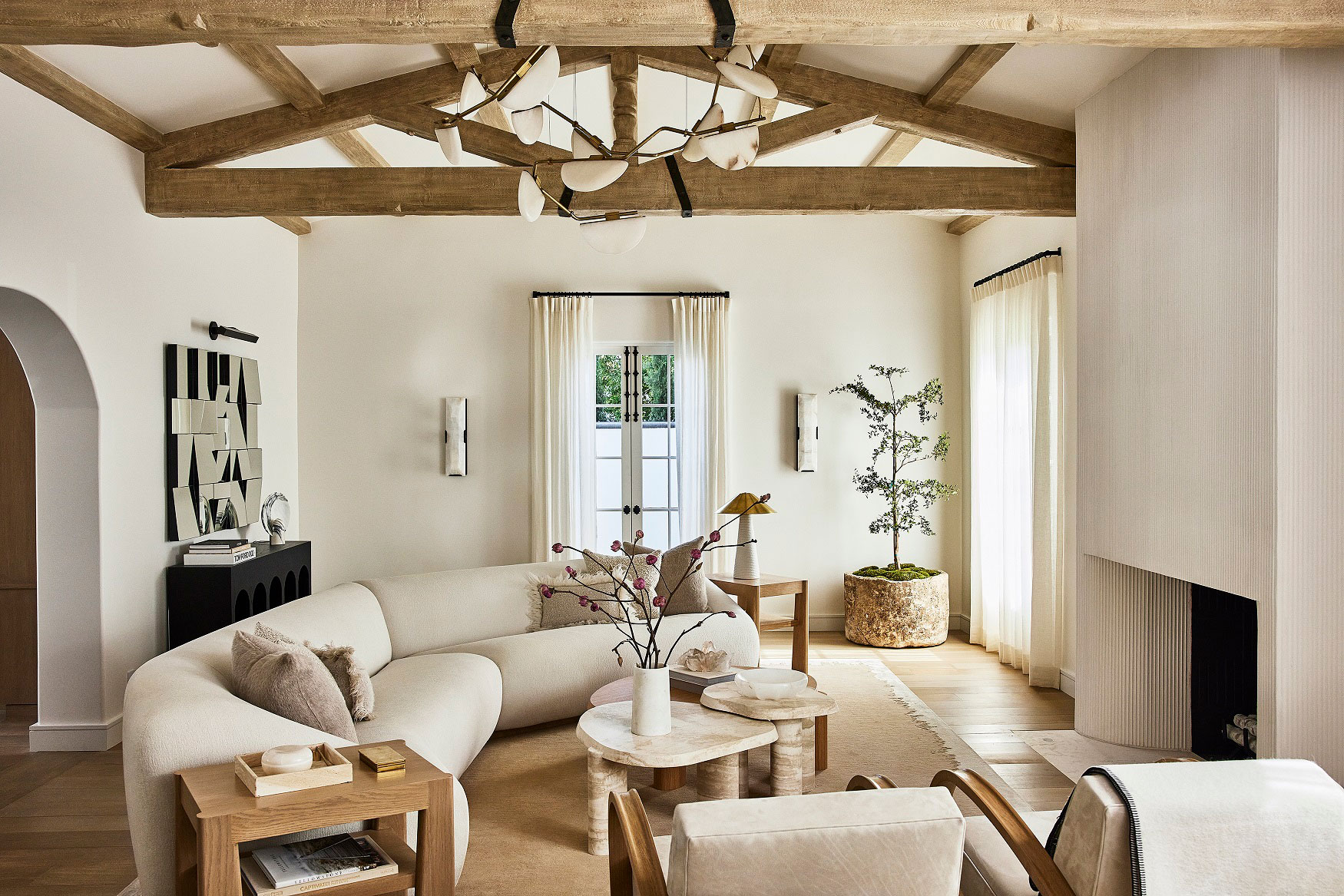
Just when we thought we had predicted all of the best interior design trends for this year, warm minimalism started making guest appearances on our feeds.
In many ways this trend comes as no surprise, and actually, it does not feel like a 'trend' perse. Warm minimalism has far more longevity to it. In fact, it seems like a natural production of the soft, earth-inspired hues, and subtle curated, less obviously decorated, approach that defined 2023's iconic home looks. As we reach the start of 2024, you might still be wondering how to invite minimalism's cozier and more approachable cousin into your home. So we reached into our little black book of designers to learn their latest tips to create with chic yet welcoming aesthetic.
How to embrace cozy minimalism at home
Warm minimalism can look different in every home. With this style, it is all about being intentional and taking a slower approach to adorning your space. Think of it less about decorating and more about working on a piece of art.
Neutral living rooms and minimalist kitchens will have a little more depth, there will be subtle warm and layered lighting, creamy monochromatic color schemes, and interesting contrasts of materials reminiscent of nature. Here is how to embrace this gorgeous, timeless, style:
1. Employ an earthy color palette
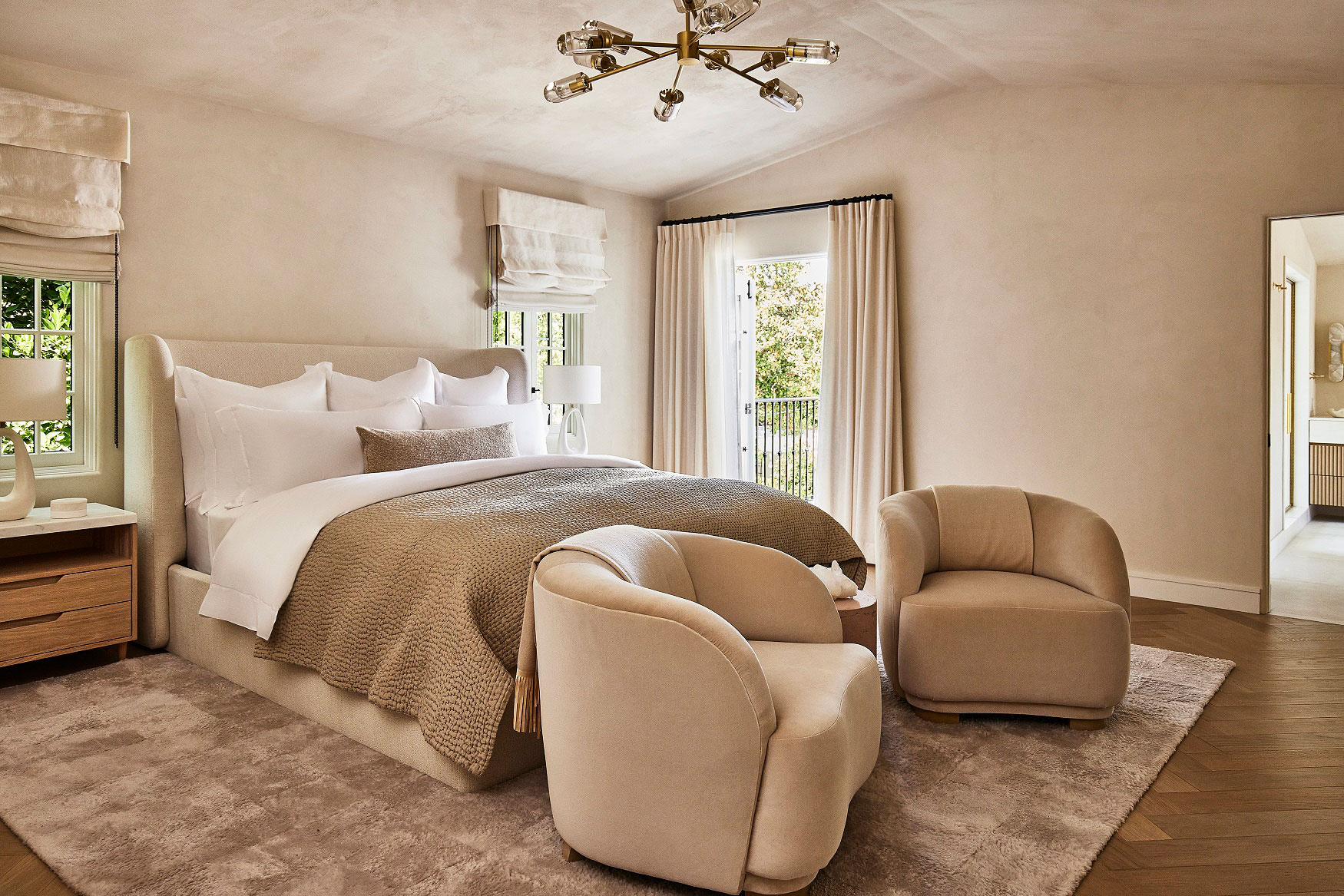
Minimalism pairs exceptionally well with a neutral color palette, when we are creating a warm minimalist feel, we want to nod to rich hues that bring a toasty and organic ambiance.
'Use earthy, organic, natural colors and materials,' recommends Kara Smith, founder and principal of KES Studios. Think shades of beige, and light brown – a key 2024 color trend forecast in itself – soft oatmeals, and more delicious tones that will cocoon living rooms, kitchens, and entryways alike.
Carry these colorways through soft furnishings like rugs, bedding, and even seating as we can see above, but pay attention to harder surfaces too. Smith tells us to favor bleached woods, honed limestone, and lime-washed plaster in particular. We have also spotted honed marble and more stone alongside wood in warm minimalist kitchens and larger spaces.
2. Keep everything intentional

As with minimalist style, regularly decluttering will help clear the canvas for a more curated approach to design. We have been considering our homes more and more like our wellness retreats, the cushioning from a long day, and making sure that everything in your space counts is key to its success.
'An obvious step towards minimalism is to clear out the clutter,' notes Joshua Smith, Principal and Founder of Joshua Smith Inc. 'It's time to let go of things you no longer need or want. A good rule of thumb when accessorizing a minimalist space is that if something enters, another must leave. This can help create balance in the space and avoid things suddenly feeling cramped over time.'
Make furniture and anything else that will feature in the room, truly thoughtful. How will it serve the space to the best it can? Can it be multifunctional, in a streamlined manner? Will storage and good looks go hand-in-hand? 'Select furniture with hidden storage and can offer double duty,' adds Smith of KES Studio who suggests ottomans that can be used to stow away unsightly items, and consoles to act as desks by day, or night.
3. Invite texture and variety
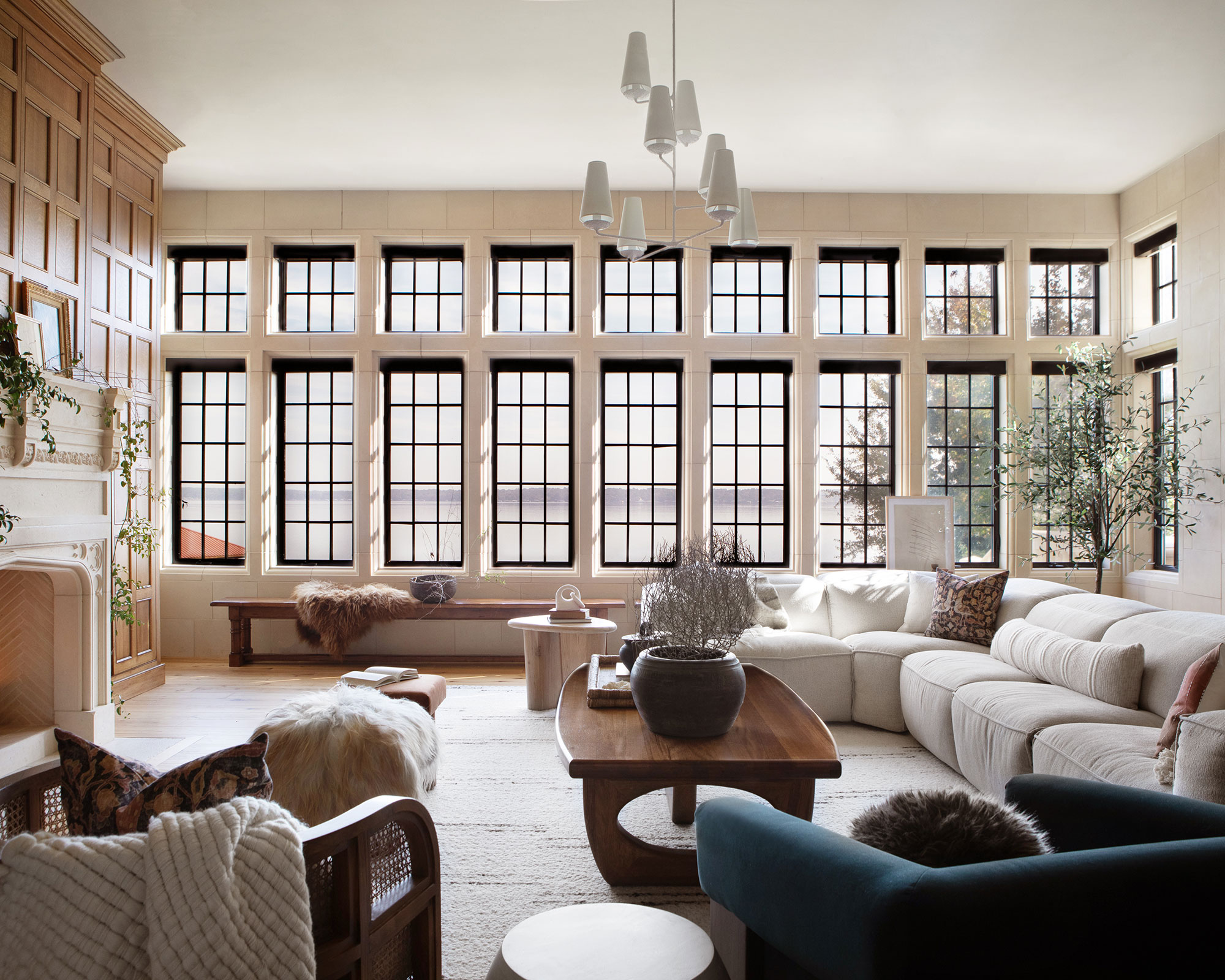
As you can see, monochrome a warm minimalist colorway may be, but lacking in detail, texture, or even pattern, it is not.
'This style needs the right layers of warmth and color balance,' notes Ginger Curtis, CEO and Founder of Urbanology. 'Select pieces with varying textures, mix metals, and warm color tones will lead to an inviting, well-balanced minimalist space.'
4. Layer and maximize light
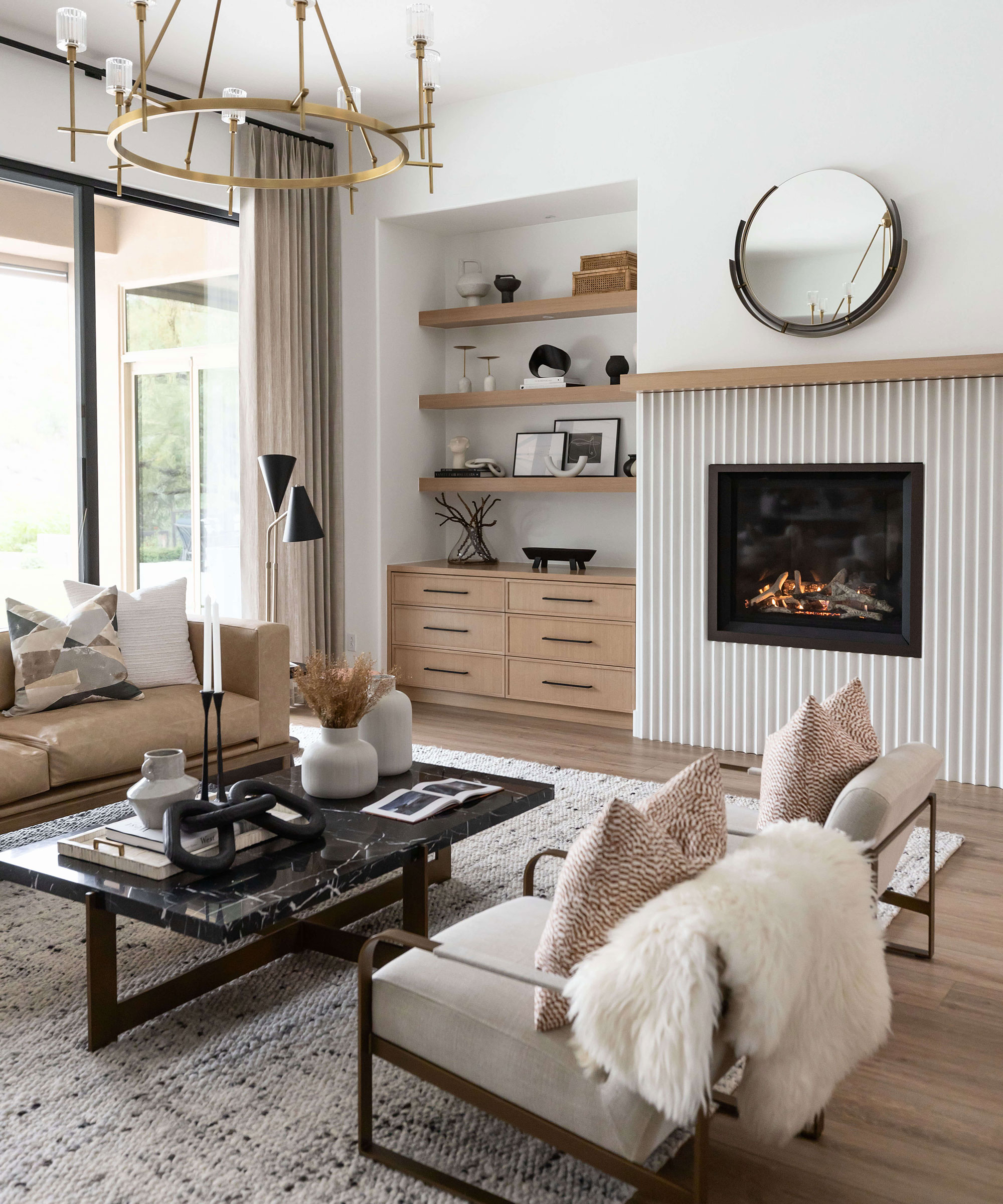
A lofty color palette will help the space feel fresh, and as with most successful interior design schemes, layered lighting will enhance and lift the surroundings.
To make the most of natural light, Smith of KES Studios suggests light-colored and lightweight window treatments: 'Gauzy linen and raw silk draperies, breezy casements, woven straw shades.' Together with heavier textures in the room this will bring balance make the space feel energized yet perfect still for hunkering down in.
5. Give your belongings room to breathe
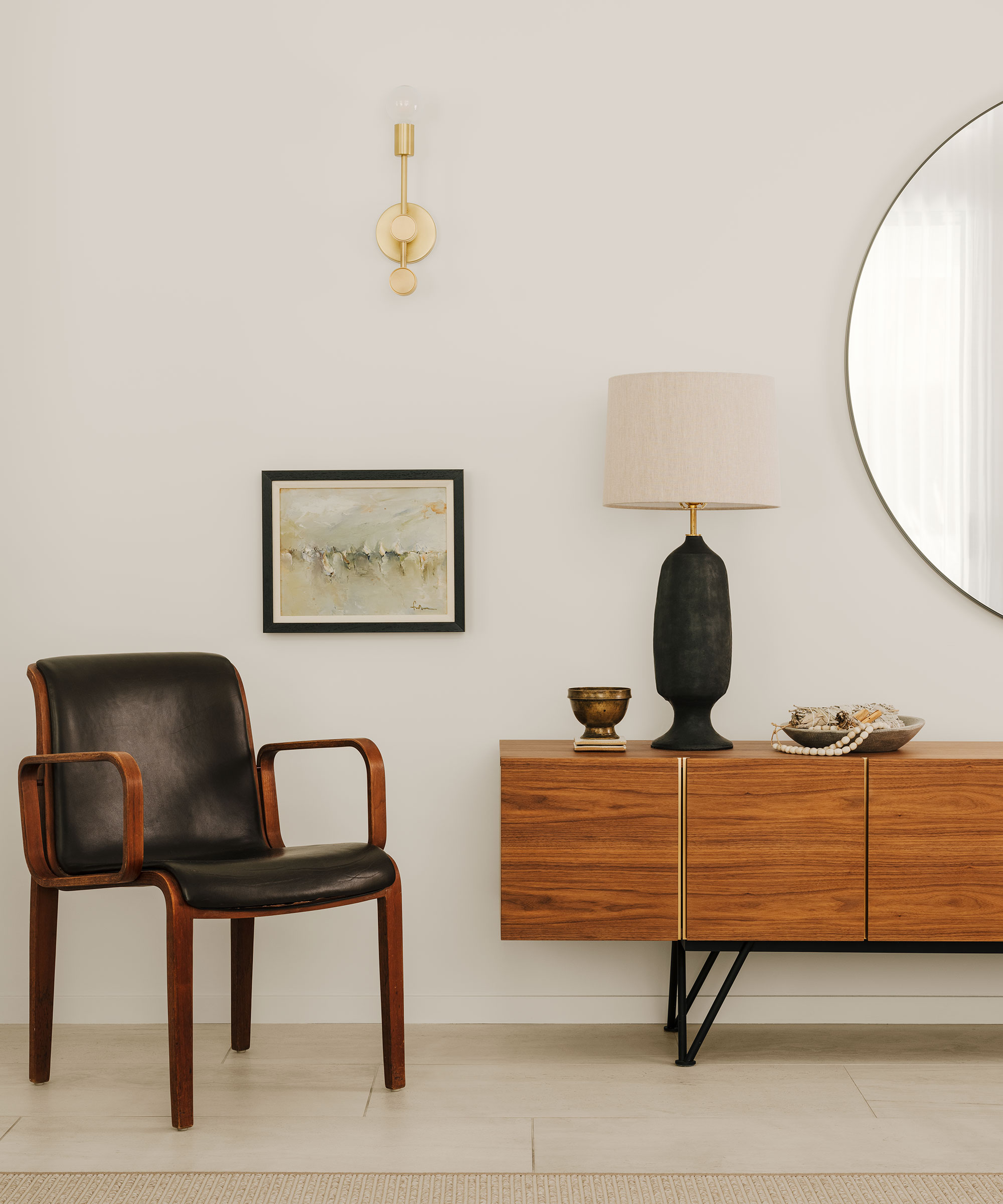
We speak of filling lonely corners or bare-looking entryways frequently, it is no wonder we seek to fill space with beauty for all eyes to land comfortably at any given hour.
As minimalists will know, we want for less items, that more often than not, will remain unoccupied. Though the thought of leaving a blank canvas may seem distressing, it will enhance other thoughtful elements in the space, highlighting small but key detail that breathes warm minimalism into your surroundings, quite literally it seems.
'Always leave space for everything to breathe energetically. Don't be afraid of empty walls!' Exclaims Smith who is a strong advocate of 'negative space' for balance. Carry this thought throughout your home, less is more even with this cozier approach to minimalism.
'If you do choose to hang art, go for simple pieces. Stick to an earth tone palette can help the art stay minimal, relaxing, and assist in injecting gentle color into the room.'
6. Bring warmth with pieces that you love
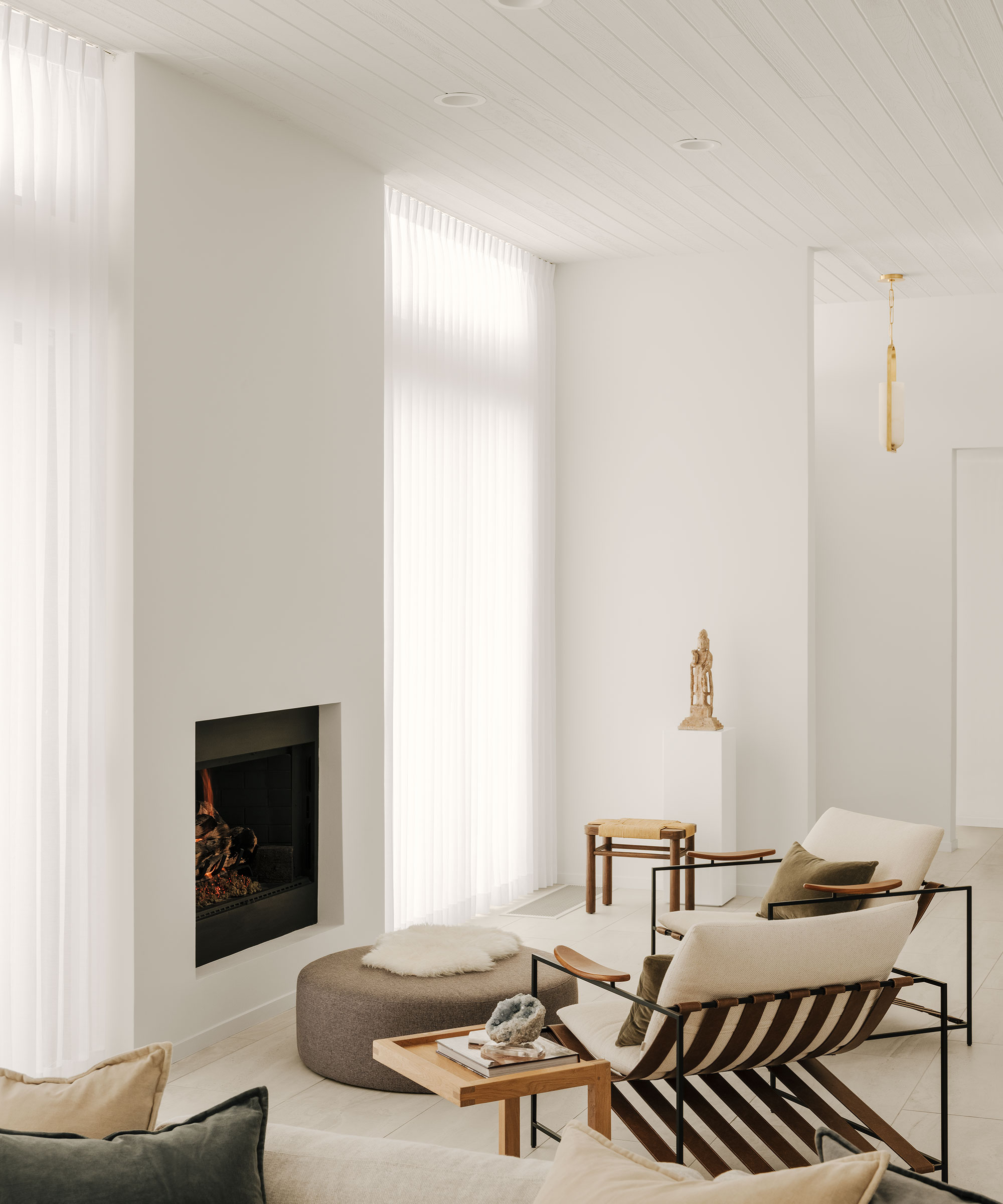
What you choose to display will inherently share a little of your personality and add charm to your home. As part of being intentional with your decor choices, to embrace warm minimalism as a home look, and as a lifestyle, and be thoughtful with ornaments and smaller objects that you keep in your surroundings. Let them tell an enrapturing tale, and cocoon the space.
Smith shares how a sense of order is still imperative for a tidy and unflustered look that remains inviting: 'Trays on coffee tables or dressers add a decorative element and a splash of style while also corralling the items we need in daily life for a cleaner, paired-back look. Ultimately, having the items and art you love neatly displayed in your space will create the warmth we're all craving.'
7. Make sure it feels right
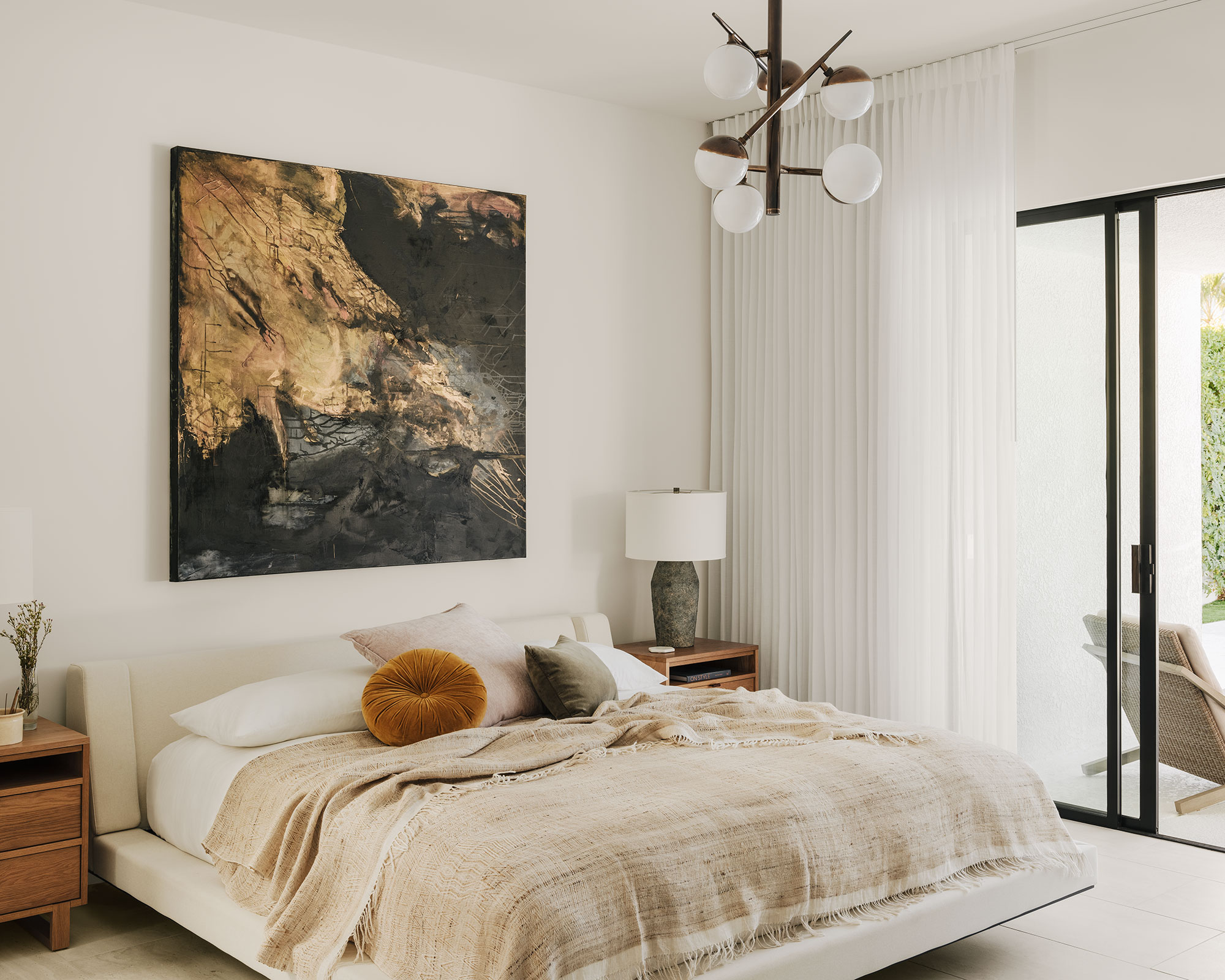
One of the core reasons that we introduce new interior design themes into our surroundings is simply to make us feel good, and to charm guests, of course. Remember this when refining your space, and do not be panicked if this takes more time than anticipated, just enjoy the process.
'Minimalism is not creating a space that feels empty; designing with it means playing with it until it feels right. Start with your coffee table styling, and arrange it in a way that doesn't feel bare or cluttered but rather beautiful, minimal, and balanced,' says Curtis. Work on your space a little bit at a time, and if you are on the fence about a style, try something, and let it breathe before committing.
FAQ
What is a mistake to avoid in warm minimalism?
Home trends can be approached the wrong way, and in enthusiasm for a new look in the home, it is only natural that we want to go the extra mile.
'Less is more with this style, but it is easy to lose the design aspects and produce a vibe that's too cold and bare feeling,' Curtis warns. Try not to overstretch the 'bare space' marker; the finish needs to be comforting and appealing. Rich, but not overdone.
'Balance and warmth are crucial to delivering the elevated beauty of minimalism. A common mistake is underestimating the scale of your furniture and decor. Don't let the desire for negative space leave you with chairs and a sofa that are way too small for a large room. Items too small or large will break the cohesive flow and feel that are vital to achieving this aesthetic. Another mistake is going too monochromatic, whether with furniture or accessories.' Get couch measurements right and always work with the living room or other room design to enjoy the best from it.
What warm minimalism accessories are there?
Many. Think cushions in cozy tones, beige rugs, and simple large-scale artwork. Simply do not go overboard and be sensitive to your surroundings. Smith shares that if you want to embrace the trend entirely you should approach accessories with caution, and not go to excess. 'Less is more and keep it functional,' says Smith. 'Collecting impactful pieces of art and accessories over time will lead to a collected feel.'
If you are still searching for more color, (perhaps maximalism is more on trend than minimalism in your eyes?) there is no harm in trying a new style. It doesn't have to go everywhere in the home, just somewhere where you and your guests will be able to relish the tranquility it has to offer.







